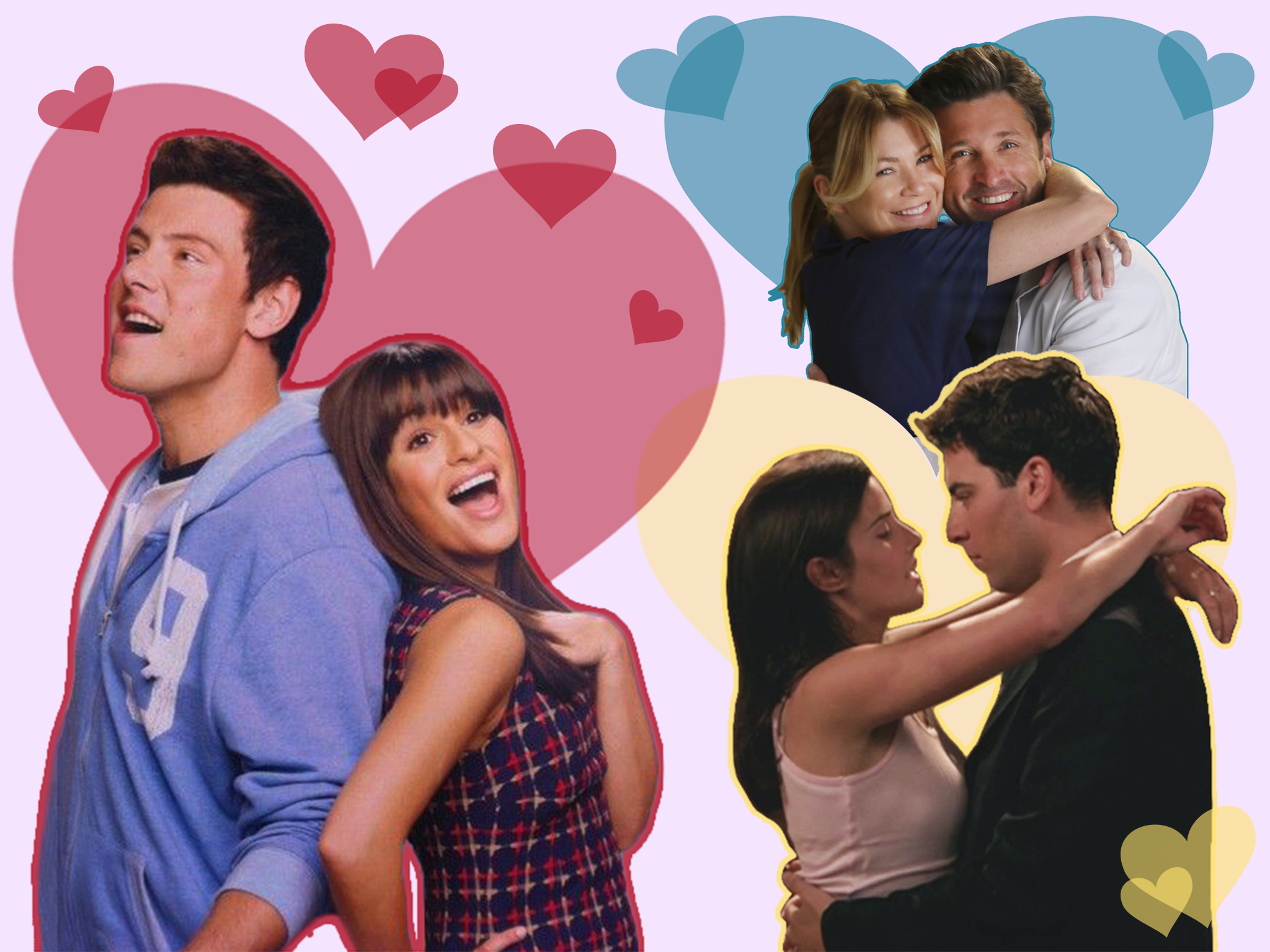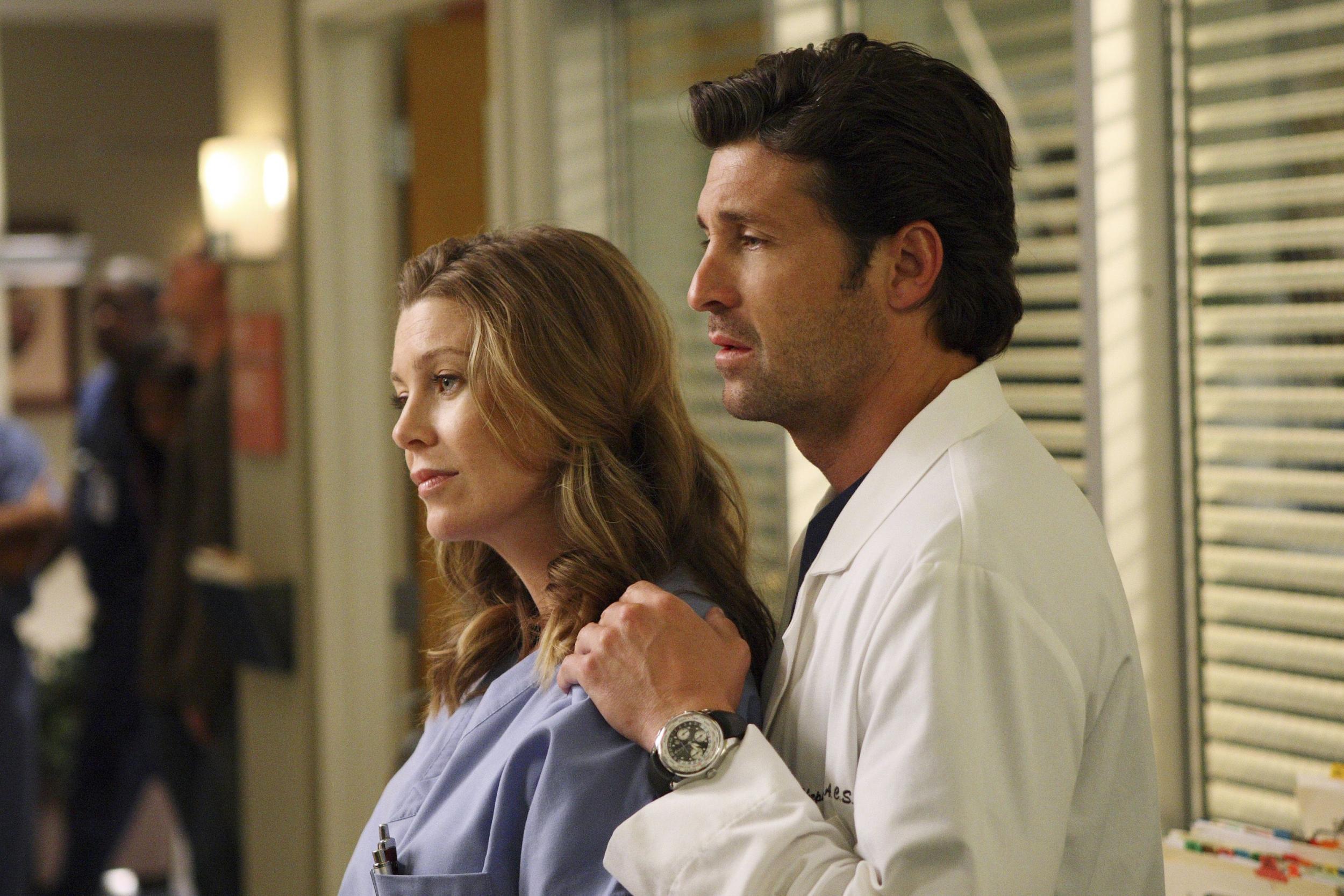TV taught me everything I know about love. What’s the harm in that?
Nothing, writes Inga Parkel, but also everything…


Let’s rewind back to the beginning, as all good romcoms do. The year is 2014, and How I Met Your Mother just alienated a majority of its fanbase with one of the most divisive endings in TV history: series schmuck Ted Mosby (Josh Radnor) rekindling the flame with his best friend and on-again-off-again love interest Robin Scherbatsky (Cobie Smulders). As Ted rocked up to Robin’s apartment with the iconic blue French horn he had stolen years ago, to lovingly commemorate their first date, she tearfully conceded. While many have condemned the finale, claiming Ted and Robin were never meant to be, I was – and still remain – its fiercest defender. This idea that “the one” would always come back, no matter what, made 17-year-old me fall in love with the concept of love. Or at least TV’s idealised, butterflies-in-the-tummy version of it.
Since childhood, I, and the rest of society, have been led to believe that love is an incredible whirlwind, an all-consuming emotion. The only thing worth living for. I was that young girl dressed in pink tutus and faux gold crowns, waiting at my window for Prince Charming to sweep me off my feet – just like all Disney Princess films had so heteronormatively depicted. It wasn’t until later that I realised these stories I had so readily accepted were unrelatable and downright unrealistic.
I was 19 when I entered my first serious relationship. She made me feel everything that How I Met Your Mother had prepared me for: dizzy, irrational, exhilarated. A year later, it ended, leaving me totally devastated. I became the very definition of a heartbroken romcom character. That summer, I holed up in my drab apartment and looked to my treasured sitcom for comfort. There I sat, in front of my TV for days, confronted with the reflection of my tear-stained face and unwashed hair, but consoled by the misguided belief that she was “the one”. And that just as HIMYM had clearly shown, she would come back.
Months went by, and I became restless. Yet, instead of accepting the horrible reality that life wasn’t a fantasy, I decided to enact a lesson I had learnt from another TV favourite, Glee.
Over the course of several seasons, the musical drama’s neurotic lead Rachel Berry (Lea Michele) is seen pining after uninterested, popular jock Finn Hudson (the late Cory Monteith). She even goes so far as to swap out her schoolgirl chic for what she wrongly assumes Finn prefers, donning thigh-high bodycon dresses and black leather bodysuits. Nevertheless, after Rachel’s tireless perseverance, she and Finn ultimately become the show’s mainstay couple. So, if HIMYM hadn’t drilled into me the importance of persistence, Ryan Murphy’s cult classic surely had.
Now, do I even need to spell out my failure? As expected, Glee’s tactic didn’t work. I thought if I convinced her I was ready to become the free-wheeling, nature-loving, thrill seeker that she was, she’d change her mind. She didn’t. And although Ted and Rachel’s undying obsessiveness brought them their happily ever after, that’s certainly not a healthy model to follow.
To this, I counter that for 19 seasons (Lord help us), hospital drama Grey’s Anatomy has succeeded in displaying numerous accounts of loving relationships. Some messy, some queer, some beautiful and some sad. From series star Meredith Grey’s (Ellen Pompeo) epic marriage to late husband Derek Shepherd (Patrick Dempsey) to the heartbreaking divorce of former gay couple Callie Torres (Sara Ramirez) and Arizona Robbins (Jessica Capshaw), and the sorrowful end to Cristina Yang’s (Sandra Oh) marriage with Owen Hunt (Kevin McKidd) when she fails to compromise on her desires, audiences were provided real and raw portrayals of love, highlighting that there is no “right way”.

But while television’s broadening landscape may offer younger generations diverse perspectives on love, we can rest assured the optimism won’t be completely destroyed. There will always be an abundance of cheesy and precious love stories – take Netflix’s warm and fuzzy Heartstopper and its sanguine picture of first-love between schoolboys Charlie (Joe Locke) and Nick (Kit Connor). Because what else is love, if not that crazy feeling, that makes us feel invincible? I’m not a total love pessimist.
Fast forward to the present day. My blue French horn moment has yet to happen. It will never be that simple, and I’ve come to accept that. But with the help of shows like Grey’s Anatomy, I’ve learnt that, in the wise words of Cristina: “(S)he’s very dreamy, but (s)he is not the sun, you are.”
Join our commenting forum
Join thought-provoking conversations, follow other Independent readers and see their replies
Comments


Bookmark popover
Removed from bookmarks